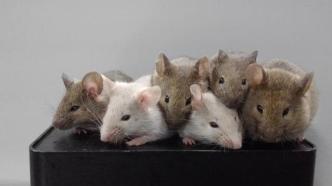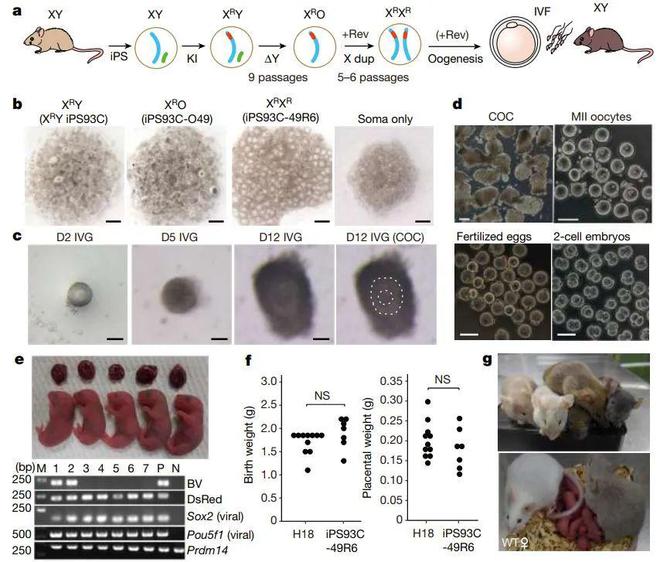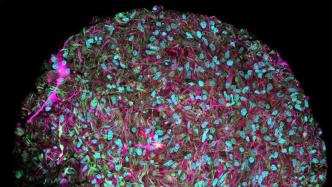
Is male birth on the verge of becoming a reality? A paper published in the British "Nature" magazine on the 16th reported a major achievement in stem cell research: the transformation of male mouse stem cells into female cells and the production of functional egg cells, which can produce about 1% of embryos obtained after fertilization healthy offspring. The implications of this study may drive future fertility research.
Male and female gametes -- sperm and oocytes (eggs) respectively -- are produced from a type of stem cell called a primordial germ cell. Differentiation of these stem cells into gametes requires the sex chromosomes to function properly. Previous studies that have explored the possibility of changing the sex of primordial germ cells have found that gamete production is either reduced, producing only very low-fertility cells. But this time, Lin Keyan's team at Kyushu University in Japan reported that it is possible to produce more robust egg cells using pluripotent stem cells (including embryonic stem cells and induced pluripotent stem cells).
The team used skin cells from the tails of mature male mice (carrying XY chromosomes) and transformed these cells into induced pluripotent stem cells. They cultured these stem cells in vitro, a process that produced a rare subset of cells (approximately 6 percent of cultured cells) missing the Y chromosome, known as "XO" cells.

The oocytes generated from the sexually transferred pluripotent stem cells were eventually fertilized and produced offspring.
Continued development of these XO cells in culture induces duplication of the X chromosome. Treating cells with adversin, a drug that interferes with cell division, increases the efficiency of X chromosome replication. The resulting double X-chromosomal cells were induced to differentiate into primordial germ cell-like cells, which in turn differentiated into eggs, which, when fertilized and implanted in the uterus of a mouse, produced viable offspring: about 100 of these transferred embryos 1% can develop into cubs.
The researchers note that more rigorous evaluation of the effect of changing male cells into female cells on genome stability is still needed, which is important for future research and applications. (Original title "Milestone! Male mice produce functional egg cells")


